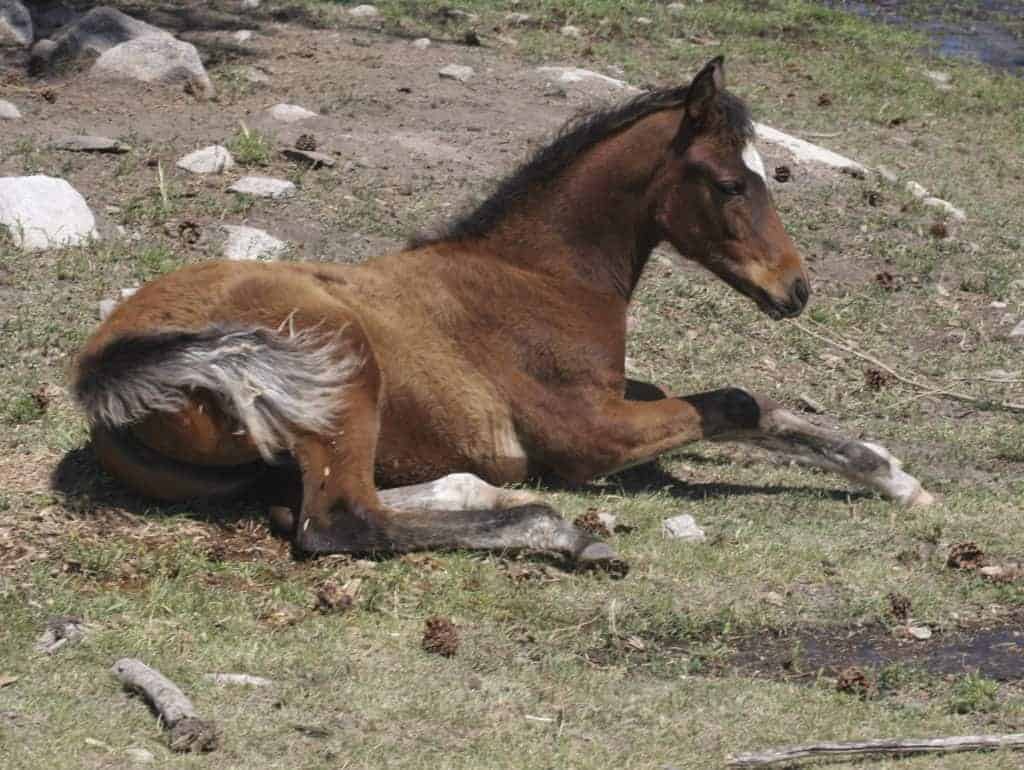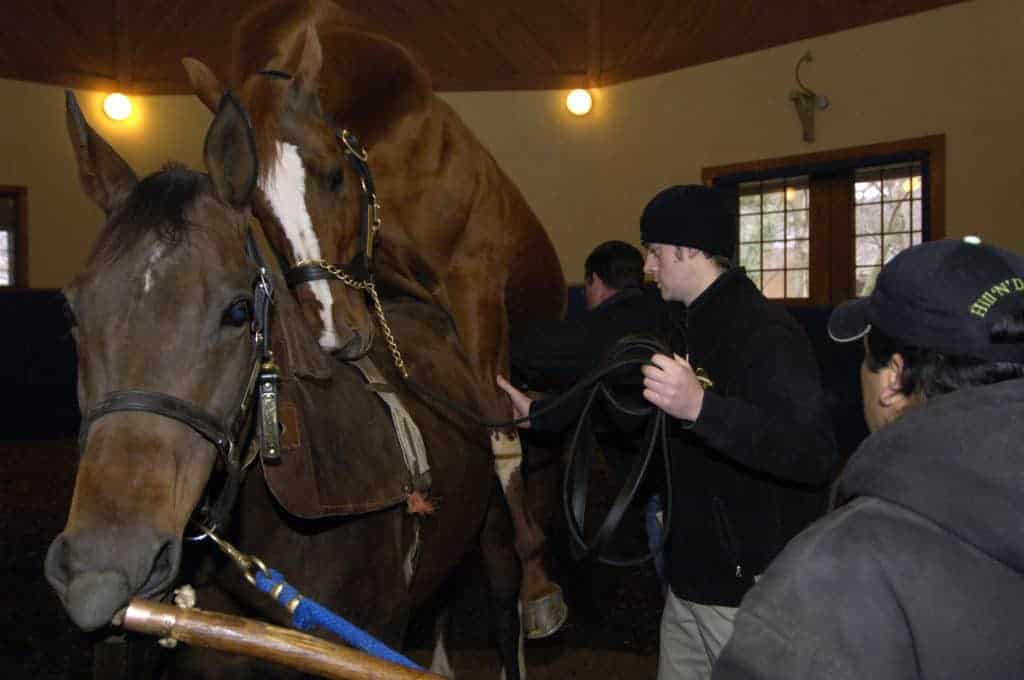Myostatin Gene in Thoroughbreds: Further Research Completed
Researchers are working to understand the link between the myostatin gene and Thoroughbreds’ racing potential.
Researchers are working to understand the link between the myostatin gene and Thoroughbreds’ racing potential.
Researchers from Inner Mongolia Agricultural University and BGI have sequenced the Mongolian horse genome.
The APHA has introduced the University of California, Davis, as its official genetic testing provider.

Grade horses provide a great pool of genetic variation and generally lack many of the genetic diseases that currently can afflict purebreds.

The 2011 Thoroughbred Pedigree, Genetics, and Performance Conference will be held Sept. 7-8 in Lexington, Ky.,

Cerebellar abiotrophy (CA) might be able to jump the “breed barrier” and affect other types of horses.
A mare’s pregnancy might not seem that complicated on the surface, but her relationship with the embryo and its adjacent parts–in total, the conceptus–is remarkably complex. In order to prevent early embryonic loss, the conceptus must interrupt her
The genetics behind the athletic performance of Thoroughbred racehorses has been a popular area of research in the past few years. A large-scale study was carried out recently in Japan, the results of which corroborate those of previous studies:
In the event of an equine viral arteritis (EVA) outbreak, is it safe to vaccinate your pregnant mare so she develops the immunity she needs to prevent infection and resulting abortion? The results of a recent collaborative study completed by
The immune system allows humans and animals including horses to survive in a complex world filled with harmful bacteria and viruses that can use our bodies for nourishment and reproduce within us. The immune system protects us from those organisms
Expected birth date is an age-old question for horse breeders tending to four-legged mothers-to-be. Most mares are bred naturally in a scheduled breeding with the stallion or through artificial insemination. Dave Freeman, PhD, Oklahoma State
When it comes to a mare’s uterus, ultrasound examination and cytology (examination of cells under a microscope) can give a veterinarian a pretty good picture of what’s going on inside that could be confounding conception. However, comparing these
This year the University of Kentucky’s Animal Genetics Testing & Research Laboratory (AGTRL) will celebrate 25 years of offering a variety of genetic testing services to horse owners and breed registries. Established in 1986 and formerly known as the Parentage Testing Laboratory, the AGTRL is located in the Gluck Equine Research Center after being housed in the Dimmock Animal Pathology building at

Geneticists have created tools and tests that help horse breeders select for healthy foals. Furthermore, access to the equine genome means scientists can examine common diseases and conditions and find ways to prevent (and one day treat) them.

Live cover breeding of horses remains a popular choice. Whatever your reason for choosing this method, these 10 tips will be useful as you plan a mating. Attention to safety and behavior go a long way in making the experience positive and successful.
Genetics is one of the many research focus areas at the University of Kentucky’s Gluck Equine Research Center. A subset of this emphasis area is the Animal Genetic Testing and Research Laboratory (AGTRL), which allows horse owners to investigate their horses’ DNA and offers a range of tests to the public, including those for genetic disorders and coat color patterns.
Stay on top of the most recent Horse Health news with
"*" indicates required fields